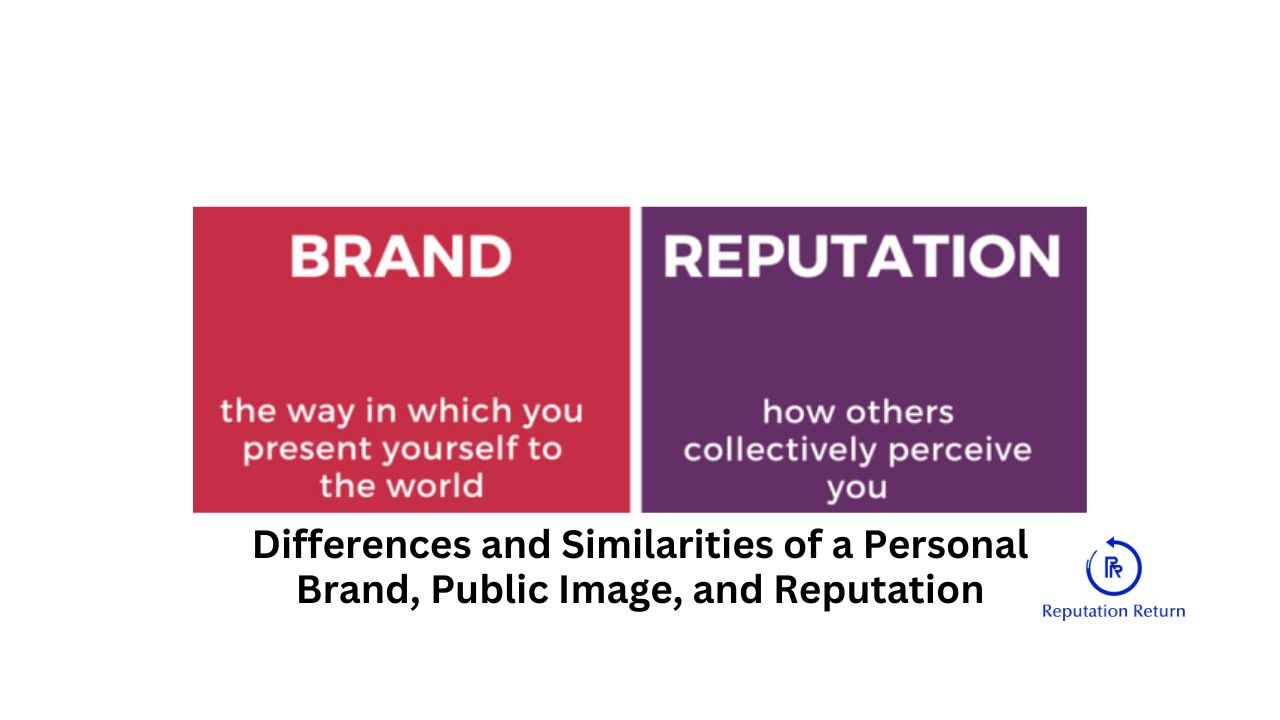The concepts of personal brand, public image, and reputation are often intertwined, yet each holds distinct meanings and implications. Understanding these differences and similarities is crucial for individuals aiming to navigate their professional and personal lives successfully.
Personal Brand
A personal brand refers to the intentional efforts by an individual to create and manage how they are perceived by others. It encompasses the unique combination of skills, experiences, and personality traits that define an individual. Personal branding involves consciously crafting an identity and narrative that aligns with one’s goals and values. It is about presenting oneself consistently across various platforms to build a coherent and compelling persona.
For instance, an entrepreneur might develop a personal brand centered around innovation and leadership by sharing insights on social media, speaking at conferences, and publishing articles. Personal branding is proactive and strategic, focusing on differentiation and value proposition.
Public Image
Public image, on the other hand, is how others perceive an individual based on their public interactions and appearances. It is the outward expression of one’s personal brand but is largely shaped by external perceptions. Public image can be influenced by media portrayals, social media activity, public behavior, and other visible actions.
While an individual can attempt to control their public image, it is ultimately constructed by the audience. For example, a celebrity’s public image may be that of a philanthropic and responsible individual if they frequently engage in charity work and promote social causes. However, public image can be fragile and subject to change based on public opinion and media scrutiny.
Reputation
Reputation is the cumulative assessment of an individual’s or organization’s character and trustworthiness over time. It is built on past actions, consistency, and the collective judgment of others. Reputation is more enduring and less susceptible to short-term changes than public image. It reflects the long-term credibility and reliability of an individual.
For example, a business leader known for ethical practices and fair treatment of employees will likely enjoy a strong reputation. Reputation encompasses both personal and professional dimensions and is harder to rebuild once damaged.
Similarities
Despite their differences, personal brand, public image, and reputation share commonalities:
- Interdependence: An individual’s personal brand influences their public image, which in turn affects their reputation. They are interconnected facets of how a person is perceived.
- Perception: All three are fundamentally about perception—how an individual is viewed by others.
- Management: They require active management to ensure alignment with personal and professional goals.
Role of Online Reputation Management (ORM)
Building
- Content Creation: ORM involves creating and promoting positive content that aligns with the individual’s desired personal brand. This includes blogs, social media posts, and media engagements that highlight one’s expertise and values.
- Profile Optimization: Ensuring that personal profiles on platforms like LinkedIn, Twitter, and personal websites are up-to-date and reflect the individual’s brand accurately.
Optimizing
- SEO Strategies: ORM employs search engine optimization (SEO) techniques to ensure that positive content ranks higher in search results, making it more visible to the public.
- Engagement: Regularly engaging with the audience through social media, comments, and discussions helps reinforce the personal brand and public image.
Protecting
- Monitoring: Continuous monitoring of online mentions and reviews allows for the timely addressing of potential issues that could harm public image and reputation.
- Crisis Management: In the event of negative publicity or defamation, ORM strategies include swift responses, transparent communication, and mitigation plans to manage and repair damage.
- Review Management: Proactively seeking and managing reviews can help balance negative feedback with positive testimonials, thus protecting and enhancing reputation.
Understanding the nuances of personal brand, public image, and reputation is essential for anyone looking to maintain a positive and influential presence both online and offline. Through proactive ORM strategies, individuals can effectively build, optimize, and protect these critical aspects, ensuring long-term success and credibility in their personal and professional lives. By leveraging ORM tools and techniques, one can navigate the complexities of modern reputation management, fostering trust and authenticity in their interactions with the world.
Do you have questions about your personal brand, public image, and reputation? Ask here >>>

